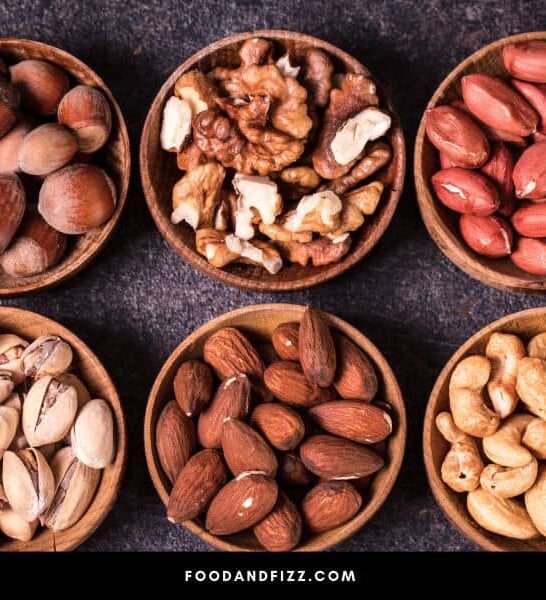Nuts, like all other food, also reach a point where they are no longer good to consume. As most nuts are made up of fats and oil, the term most often used to describe expired nuts is “rancidity”.
Rancidity refers to the oxidation of fats when they are exposed to light, air, moisture, and bacteria. This is what determines if the nuts have gone bad and cannot be consumed anymore.
You can usually tell that nuts have gone bad by the way they taste and the way they smell. While rancid nuts may not immediately make you sick the way spoiled food does, the compounds formed from rancid fats can have a harmful effect on your health in the long run.
So yes, nuts do expire in the sense that they reach a point where they are not good to eat anymore, but not in exactly the same way as other types of spoiled food go bad.
So how do we know that nuts are no longer good to eat?
Can Nuts Expire?
Nuts can expire when the fats contained in them oxidize due to exposure to light, air, moisture, and bacteria. This is what’s known as “rancidity”. You can tell by the way the nuts smell and taste that they have gone bad. While they may not necessarily make you immediately sick the way other spoiled food can, they may potentially have ill effects on the body over the long term.
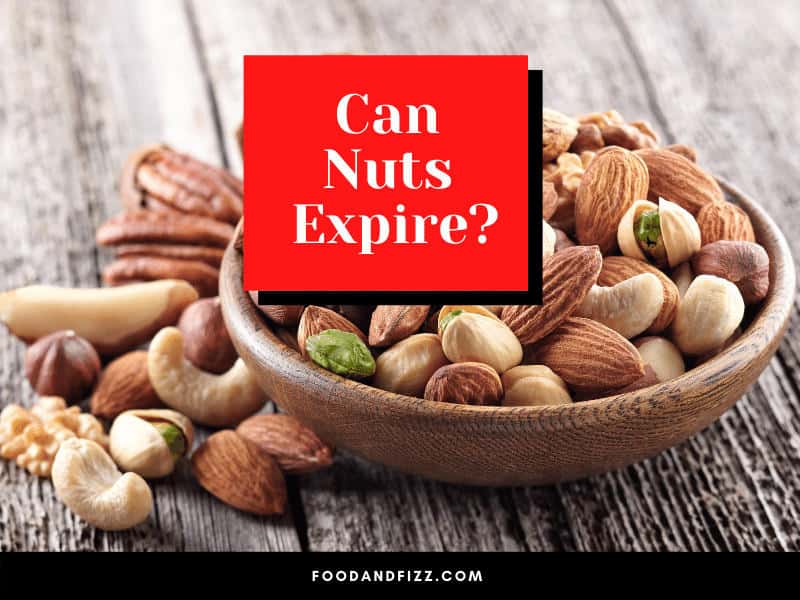
What Are Nuts?
Nuts are technically edible dried fruits that have outer protective shells. They grow on trees and shrubs and usually have a high oil content. Strictly speaking, they have both the seed and the fruit inside this hard shell. Examples of this are pecans and walnuts.
Drupes
There are other nuts that we are used to seeing that are not technically nuts botanically speaking, like almonds and walnuts.
Unlike in true nuts where the fruit and the seed are contained in one hard, protective shell, almonds and walnuts actually have a fleshy part that surrounds them.
However, instead of eating the fleshy part as with most fruits, we eat the pits or the seed in the middle, or the “nut”. Plants like this are called “drupes”.
Other examples of drupes are peaches and olives. It’s actually quite fascinating to know that almonds and walnuts are more closely related to olives and peaches than hazelnuts and chestnuts.
A Nut in Name But Not In Character
Another interesting example of a nut that’s not a true nut, is the peanut. Despite its name, peanuts are not true nuts, and are rather botanically considered a legume, like soybeans and lentils.
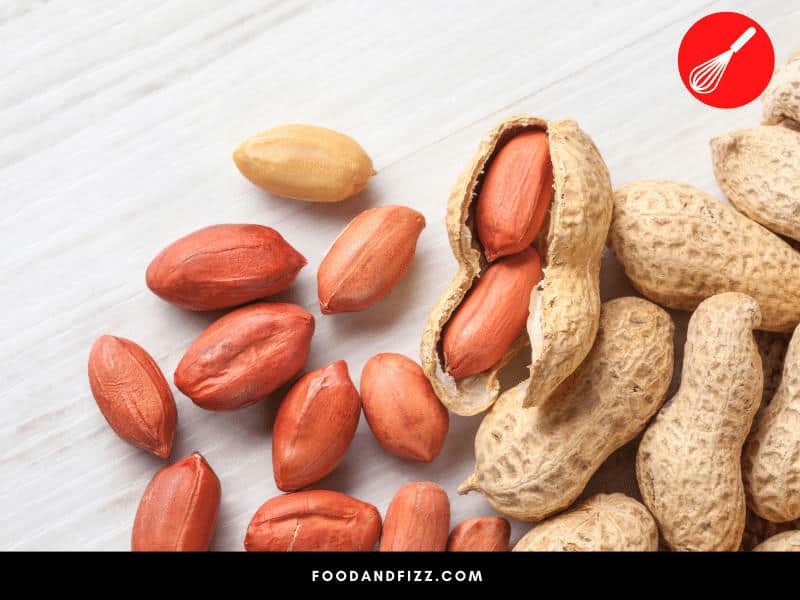
A Culinary Family
In culinary usage though, whether they are true nuts, drupes, or legumes, they are all grouped into one family. This family is known as “culinary nuts”.
Culinary nuts are a group of dried edible fruit or seeds that usually have a high fat content and are used in baking and cooking to add texture, flavor and nutrition to dishes.
What Are the Culinary Uses of Nuts?
Nuts are used in a variety of different ways in the culinary world. Not only do they add texture and flavor to dishes in their natural form, but they can also be processed and transformed which allows them to be used in a lot of inventive and innovative ways. Below are some examples of how nuts can be used in cooking and baking.
1. Breading
Nuts can be ground and be used as a breading or topping for many dishes. Mix with herbs, spices and seasoning, and they are a great alternative to flour and breadcrumbs.
2. Nut Milk
Nuts like almonds, macadamias, and cashews can easily be made into plant-based milks by simply soaking, blending, and straining them. Especially since store-bought plant milks can be expensive, it’s good to know that they are not that hard to make. You can even pasteurize your own almond milk.
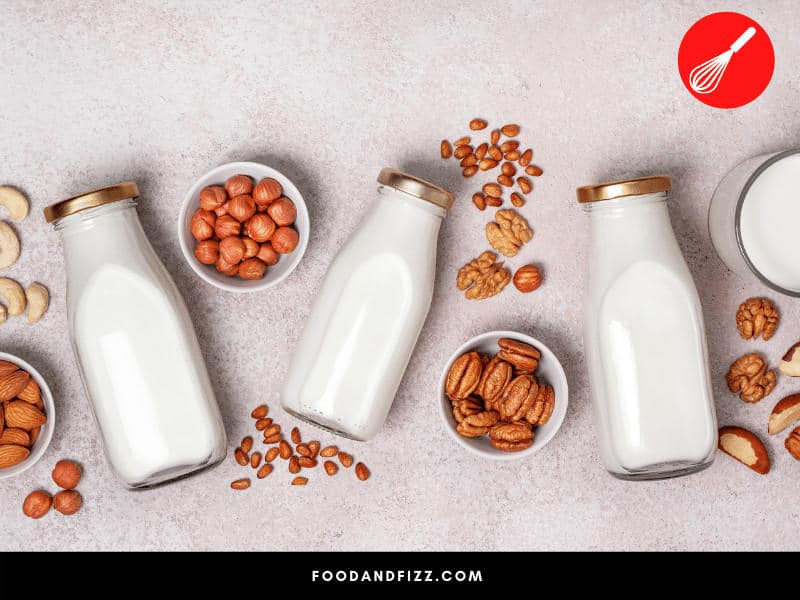
3. Flour
Almonds and pecans can be ground finely and be used as a gluten-free replacement for wheat flour in baking, as do macadamia nuts. Macadamia nuts have a naturally sweet and buttery taste, and works well with baked goods.
Of course, they are not one-for-one replacements, and you need to experiment with the right proportions, but combined with other ingredients, they can be a healthy, nutritious base for gluten-free desserts.
They also make excellent pie crusts and bases for other desserts.
4. Nut Butters
Peanut butter used to be the only star of the show in terms of nut butter, but lately, we have been given other alternatives in the form of almond, cashew, and other nut butters.
They give us a boost of needed nutritional benefits and also offer an alternative flavor profile. Aside from nut butters, seed butters like sunflower butter are also becoming very prominent in the market.
As with the nut milks, nut butters are easily doable at home. Simply blend nuts in a food processor and keep processing until they break down and release their oils.
Eventually, they will transform into nut butter. At this point, different flavors and ingredients may be added like chocolate, so you can create your own unique flavor of nut butter.
Nut butters can also be used as egg replacers in baking. My favorite cookie recipe is egg-free, dairy-free and gluten-free and has all the goodness and nutritional benefits of almond butter!
5. Cream Alternative
Cashew cream is a game-changer in plant-based cooking. Aside from coconut cream, cashews are the most used nut to make vegan cream sauces and are usually used to make vegan cheese.
There are many other uses for nuts in cooking and baking, so it is no wonder that they are highly prized and valued in the culinary world. And also why, when a bag of highly prized nuts go bad under your care, it can be mildly distressing.
How do You Properly Store Nuts?
So, given that nuts are so versatile and so highly prized, how do you make sure they don’t go bad on you, and you don’t waste them? Below are some tips for proper storage.
1. Store in airtight containers
As nuts go rancid because of light, air, and moisture, it is important to store your nuts in airtight containers. This minimizes their exposure to those factors that hasten oxidation and rancidity.
2. Store them in the fridge or freezer
To take this a step further, aside from storing in airtight containers, nuts will last longer when stored in the fridge or freezer. In this environment, they have limited exposure to the factors that cause rancidity, and more than that, they also would not be subject to temperature fluctuations.
3. If keeping at room temperature, store away from light and air.
If you absolutely have to store them at room temperature, keep them in tightly sealed containers in a cool, dark place.
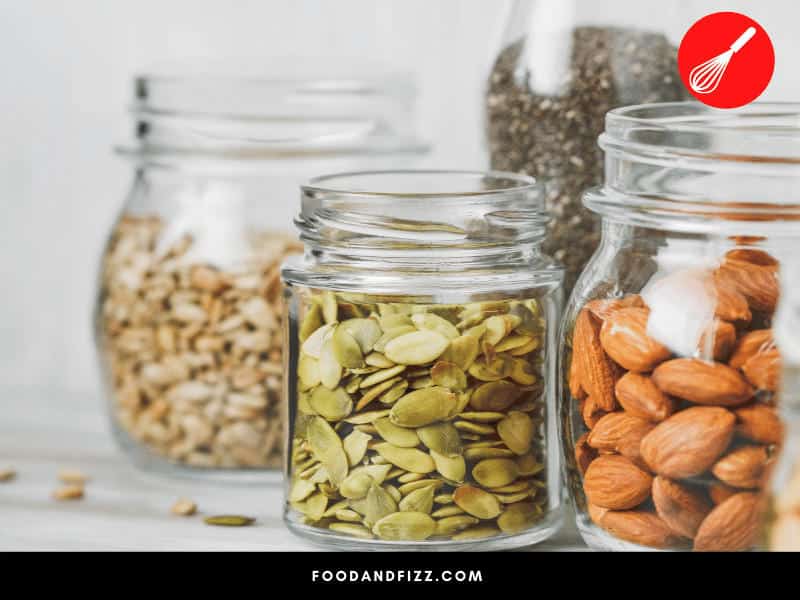
4. Buy only what you need
If you don’t have the pantry, freezer, or fridge space to store large quantities of nuts, make sure to buy only what you need. Nuts are fairly easy to find in grocery stores and baking stores, which means that you can easily buy what you need for your recipes.
5. Opt to buy raw, whole nuts rather than ground
While ground nuts are convenient, opting to buy raw, whole nuts will make them last longer.
Of course, if you are using them as a flour replacement, buying ground would be the best choice. In which case, make sure to properly store them in the fridge or freezer so that they will last longer.
Nuts, if properly stored, can last from a few months up to a year. Specific shelf life would just depend on the kind of nuts you have and how you bought them.
Signs that Nuts Have Gone Bad
There are two easy, but rather unpleasant ways to tell that your nuts have gone bad.
1. Smell
Nuts that are still good will smell, well, nutty. And pleasantly so. Rancid nuts, on the other hand, will have an off smell that will sometimes be sour like vinegar.
Some people have said that sometimes the smell may even be similar to paint or nail polish. If your bag of nuts does not smell pleasantly nutty, they have gone rancid, and should be thrown out.
2. Taste
If for some reason you can’t tell by the smell, you can break off a piece and try and taste the nuts. If it tastes bitter or sour or if it has any other unpleasant taste, then they have gone bad and should be tossed. Nuts should not have an off taste.
What are the Risks of Eating Expired or Rancid Nuts?
Consuming rancid nuts will likely not make you sick the way consuming other spoiled food does. Apart from the unpleasant taste in your mouth, you may not experience any visible effects from eating rancid nuts.
However, especially if you consumed large amounts, in some cases, it may cause digestive issues and cause nausea or vomiting.
The real danger with eating rancid nuts with oxidized fats are the compounds you are potentially ingesting that may contribute to some form of inflammation in your body or potentially be carcinogenic.
That’s why even if it won’t make you sick now, it may contribute to a host of other more serious illnesses in the future.
What Are The Health Benefits of Nuts?
Nuts have a host of health benefits that are a great addition to any healthy diet. Some of them are:
- Good source of protein and omega 3 fatty acids that contribute to heart and brain health
- Good source of unsaturated fats that help with feeling full, and therefore aids in weight loss
- Contains lots of antioxidants
- Great source of vitamins and minerals like magnesium, calcium, potassium, niacin, and Vitamin E and B6
- Low carb and rich in healthy fats
- Reduces Inflammation and protects against heart disease and stroke
Nuts are definitely superstars in the culinary world not just in terms of versatility, but more importantly because of their many nutritional benefits!
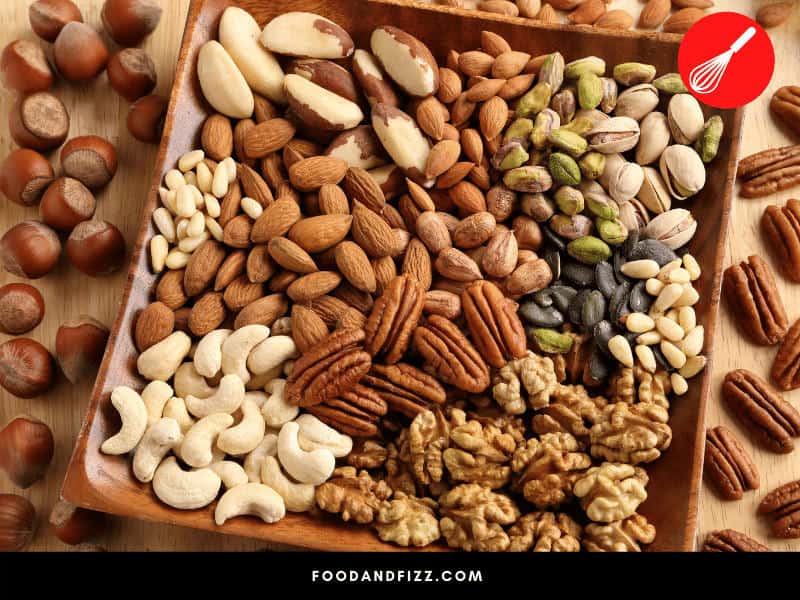
Conclusion to Can Nuts Expire?
As with other types of food, nuts do go bad. However, with proper storage and handling, you can make them last longer.
You can easily tell by the way they smell and taste if they have gone rancid, and while eating rancid nuts may not have immediate ill-effects, it is best not to consume them as they have the potential to contribute to more serious illnesses in the future.
Are Peanuts Considered Nuts?
Even if they have nuts in their name, peanuts are not really nuts. They are considered legumes like lentils and soy.
Can I Eat Rancid Nuts?
It is not advisable to eat rancid nuts. Not only will they not taste good, but they may potentially harbor harmful compounds that may have serious health risks over the long term.
Can Rancid Nuts Make Me Sick?
In small quantities, eating rancid nuts will not necessarily make you sick the way other spoiled food can. In large amounts though, they may cause digestive issues. The oxidized compounds in rancid nuts may also contribute to more serious, long-term illnesses such as inflammation and cancer.

